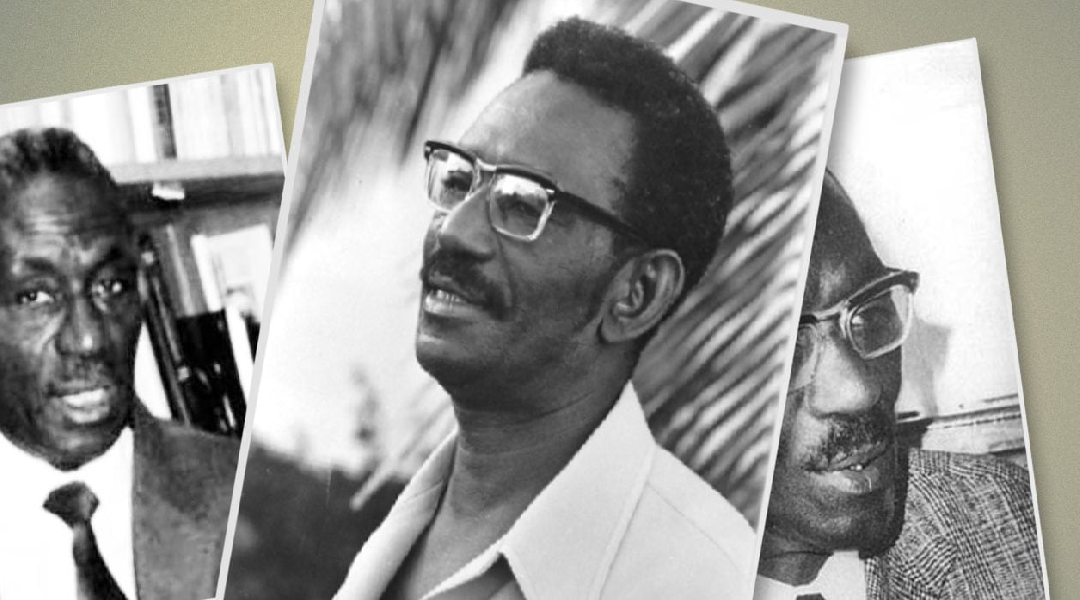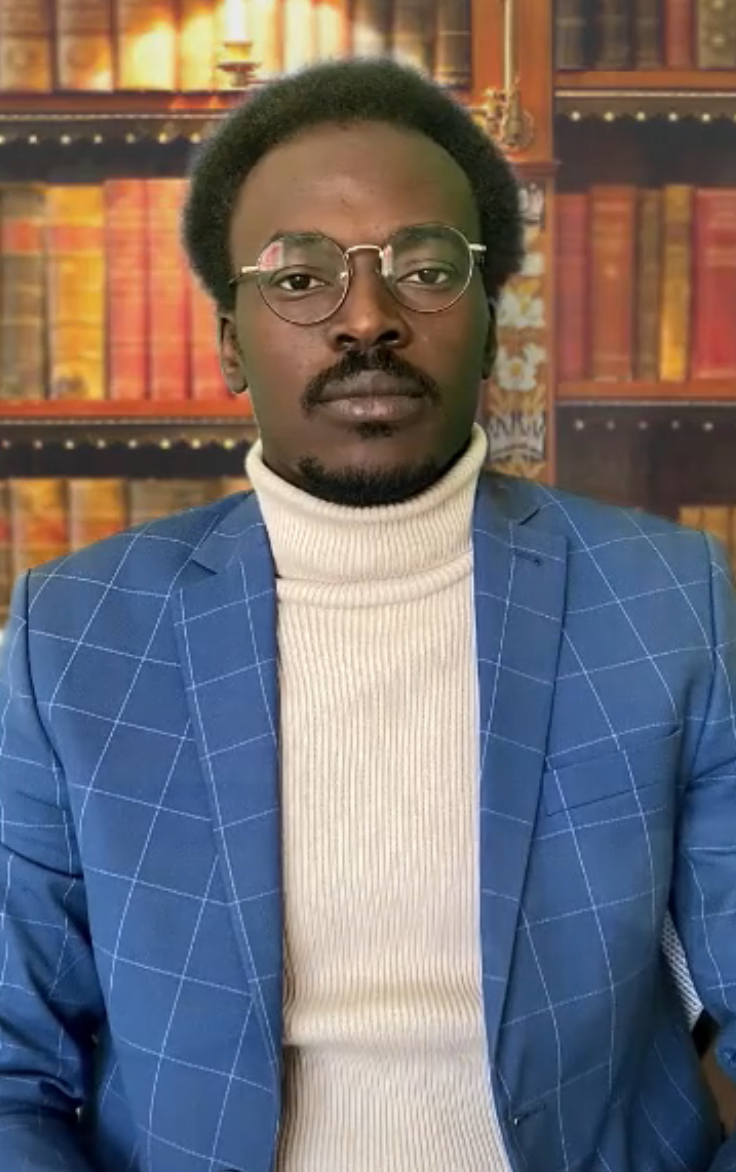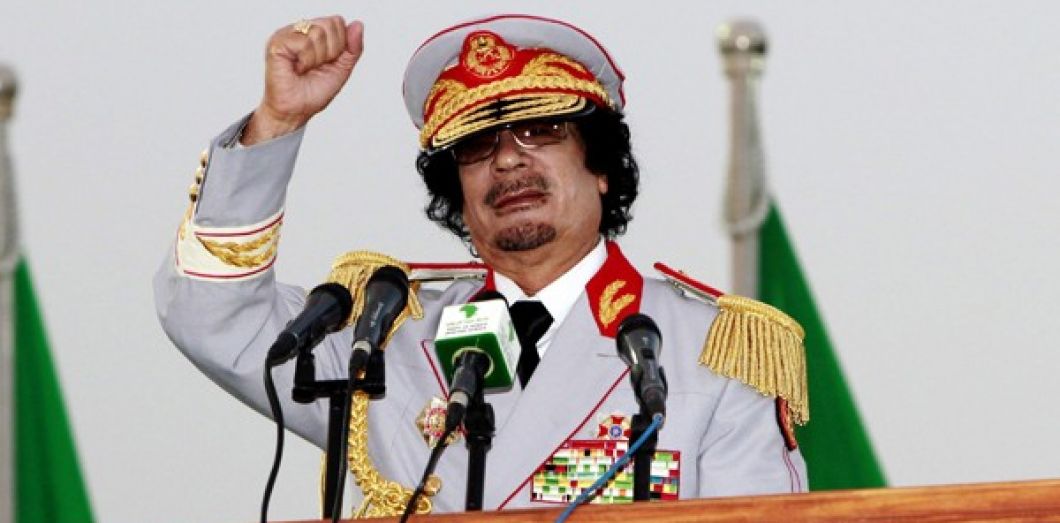Introduction
Born on December 29,
1923, in Thieytou (Senegal), Cheikh Anta Diop is one of the most influential
African thinkers and scientists of the 20th century. He has pursued a broad
career spanning from engineering and applied sciences to politics, philosophy,
and history. Scientist and politician Prof. Cheikh Anta Diop's professional
journey revolves around two main elements. The first is the thesis defending
the black identity of ancient Egypt, which was published as a book in 1954
under the title "Nations nègres et Culture" (Black Nation and
Culture). However, this thesis, which argues that the civilization established
by the West at a time when imperialism was at its peak, owed to Ancient (black)
Egypt was not welcomed. Anta's hard work quickly aroused the hostility of the
Western scientific community, especially the French. The second point is the
vision of a united and independent Africa since 1945. Anta advocates the idea
of a united Africa in the form of federalism
in parallel with his Egyptology work and has maintained political opposition to
the regime of Léopold Sédar Senghor, who came to power during Senegal's
independence. Anta, who passed away on 7 February 1986 in Dakar, remains today
(26 years later) a scientific icon not only for Senegal but for the whole of
Africa and its diaspora.
Cheikh
Anta Diop: A New Scientific Reading of African History
Cheikh Anta Diop began
his research at a time when, for Western intellectuals, black Africa did not
constitute an intelligible historical space or was not worth considering (in
the 1940s). At that time, it was not strange to hear comments such as: “But
Africa has no history!”, “But the black man has no past!” in the corridors of
one of the most prestigious and oldest universities in Europe, such as the
Sorbonne. These discourses are mostly ahistorical statements based on the
claims and assumptions of Friedrich Hegel (Reason in History: An Introduction
to the Philosophy of History) and Arthur Gobineau (Essay on Racial Inequality).
Cheikh Anta Diop has dedicated his life to research to put an end to this scam.
In 1951, Diop prepared a doctoral thesis at the
University of Paris under the supervision of Marcel Griaule. This thesis argues
that the civilization of Ancient Egypt belonged to blacks and that the same culture
and language later spread to sub-Saharan Africa, especially West Africa. To
confirm his claim that the ancient Egyptians had the same physical features
(hair, nose, lips, and skin color) as modern-day black Africans, he cited
ancient writers such as Herodotus and Strabo who studied Ancient Egypt. His
interpretation of anthropological (such as the role of matriarchy) and
archaeological data led him to conclude that Egyptian culture was a black
culture. At the linguistic level, he found that the Wolof language spoken today
in West Africa is phonetically related to the ancient Egyptian language. The
academics at the university, who did not want to face up to or break the truths
- deceptive and humiliating - that the West had established for centuries, initially
refused to form a jury. Diop turned this thesis he prepared into a book under
the title of "Black nation and culture" in 1954 and was met with
great reaction. Later, in 1960, as many African countries gained independence,
Anta finally convened a jury to defend her thesis. Simultaneously with the
history of Ancient Egypt, he received his graduate degrees in nuclear chemistry
and physics. This multidisciplinary training will help Anta succeed in an area
that is difficult and open to criticism. Having received 3 diplomas, Anta
leaves Paris for Dakar. However, Senegal, which he returned to, was under the
rule of Leopold Sédar Senghor, who had different and even opposing views.
Therefore, this return was the beginning of a long and difficult process.
Cheikh
Anta Diop's work, which he continued with "Black Nation and Culture"
of 1954, and then with "Cultural Union of Black Africa" and
"Pre-Colonial Black Africa", constituted a breaking point not only in
history but also in humanity. What is at issue here is a break with the
ahistorical and ethnographic view of Hegel and Gobineau, inherited from the
nineteenth century, which is merely conjectures and also defines African
realities. This redefinition is not only limited to the cultural field but also
covers scientific and technological fields. In this context, Prof. Anta
advocated direct knowledge and the arming of Africans through science, said:
“True
victory is achieved with equal education. Educate yourself, arm yourself with
science from head to toe (…), and protect your cultural heritage. If you find
that my arguments are inconsistent when you get this straightforward
information, drag me into the mud. But that's just how it works, there's no
other way to do it."
This is
a new “methodology for African history” that Anta advocates and applies in her
work and is embraced by the Pan-African family – made up of all Africans on and
off the African continent. Anta's works, which serve as an ideological,
philosophical, and historical guide for African youth, are translated into
English and read by black American students.
In
1970, Diop agreed to take part in UNESCO's scientific committee tasked with
writing the General History of Africa. However, on one condition: the symposium
is to be held condition that all eciptologists in the world participate - with
three years' notice - and compare their studies on the subject of Ancient
Egypt, and that as a result, the most accepted thesis will be accepted by
everyone. This is an opportunity for Cheikh Anta to come face to face with
those who deny that European civilization, which he has proven in his studies,
owes to Africa. With this in mind, he attended the International Symposium in
Cairo in 1974 and compared his work with the world's leading Egyptologists.
Following this international symposium, Cheikh Anta was commissioned to write
the chapter devoted to the history of Ancient Egypt in the General History of
Africa. The final report of the symposium was accepted by all experts – except
for one participant – on the elements brought by Cheikh Anta Diop and Théophile
Obenga on the kinship between ancient Egyptian culture and African cultures.
Cheikh Anta Diop: Defender of
African Independence and Federal Union
At the age of 25,
Cheikh Anta Diop has the ability to break down veiled mental walls. “When can
we talk about an African renaissance?” he published in 1948 as a student in the
middle of Paris. He set out to describe the content and conditions of the
African renaissance in an article entitled. Cheikh Anta, who early joined the
Association of African Students (later to become Secretary General), the first
African magazine and publishing house “Presence Africaine” and the
“Rassemblement Démocratique Africain (RDA)” movement, African independence and
continued an active struggle for African unity. However, later the leaders of
the RDA left the movement, criticizing it, as they were increasingly
Francophile rather than Pan-African, in contrast to the movement's fundamental
principles of direct independence and unity of the continent. For Anta Diop,
the African renaissance can only be achieved by reuniting African lands shared
in colonies among Westerners under an independent union. In this perspective,
the federal state becomes a continental emergency because such a geopolitical presence
can secure, structure, and optimize the development of the African continent.
In the preface to Mahtar Diouf's book Economic Integration, African
Perspectives, published in 1984, Cheikh Anta Diop says:
“We
must certainly bring Black Africa to the brink of its federal destiny [...]
Only the continental federal state provides a sufficiently stable political and
economic space for the application of a rational formula for the economic
development of our countries with different potentials in security.”
Politically
advocating the independence of African countries and the establishment of a
federal state at the continental level, Prof. Diop contributed to the
politicization of many African intellectuals in France. Continuing the struggle
on a more cultural level, she attended various conventions of black artists and
writers. In 1960, he published the book “Les fondements économiques et
culturels d'un État fédéral en Afrique noire (The economic and cultural
foundations of a federal state in Black Africa)”. In this study, Cheikh Anta
Diop mentions fourteen proposals for concrete actions ranging from the field of
education to the field of economy and politics to the field of industry. These
fourteen suggestions can be grouped around two main points. The first point is
the need to define an efficient scientific research policy. Thereupon, Anta
Diop thinks that Africa should follow a policy of scientific and intellectual
development and pay the price; Its extreme fragility over the last five
centuries is the result of a technical deficiency. Also, intellectual growth is
the surest way to end blackmail, bullying, and humiliation. It is clear to him
that Africa can become the center of scientific initiatives and decisions
again, rather than believing that it is destined to remain last as the area of economic
expansion of developed countries. The second and final point is the need to
define an African energy doctrine and true industrialization. To this end, Anta
proposes a continental energy development plan that takes into account both
renewable and non-renewable energy sources, ecology, and the technical progress
in the coming decades. According to him, Black Africa will have to find a
formula for energy pluralism that harmoniously combines all energy sources.
Politically
active at the national level, Diop has been one of the main actors in the
democratization of political debate in Senegal, where he opposed Léopold Sédar
Senghor's regime by founding political parties, newspapers, and trade unions.
In Senegal, he shared with Senghor a significant disagreement not only on
politics but also on Blackism (Africanism) and contemporary African history.
That last disagreement is the most important issue between the two
intellectuals.
Conclusion
Famous
poet and novelist Aimé Césaire uses the following phrase to introduce Anta
Diop: “He contributed to restoring Africa's past; and while giving Africa its
past, it may have given humanity its past back”. Multilingual and
multidisciplinary Prof. Cheikh Anta Diop remains one of the most influential
scientists in African history. Seeded more than half a century ago, Anta's
ideas and visions mature over the years in the minds of younger generations of
Africans. This generation is more aware of its duties, less alienated, and more
psychologically and politically prepared. This generation can finally realize
Anta Diop's visions and put Africa back on the universal scientific course.
References ;
Amzat-Boukari Yabara. Afrika
Unite: une histoire du panafricanisme
Cheikh
Anta Diop. https://www.presenceafricaine.com/44_diop-cheikh-anta
Zerbo, Y. (2003). La
problématique de l'unité africaine: (1958-1963). Guerres
mondiales et conflits contemporains, 212, 113-127. https://doi.org/10.3917/gmcc.212.0113
Aperçu général sur la vie, la
pensée et l'œuvre de Cheikh Anta Diop www.cheikhantadiop.net
Cheikh Anta Diop
voulait une Afrique unie et fédérée https://www.jeuneafrique.com/182529/politique/cheikh-anta-diop-voulait-une-afrique-unie-et-f-d-r-e/




Laisser un commentaire